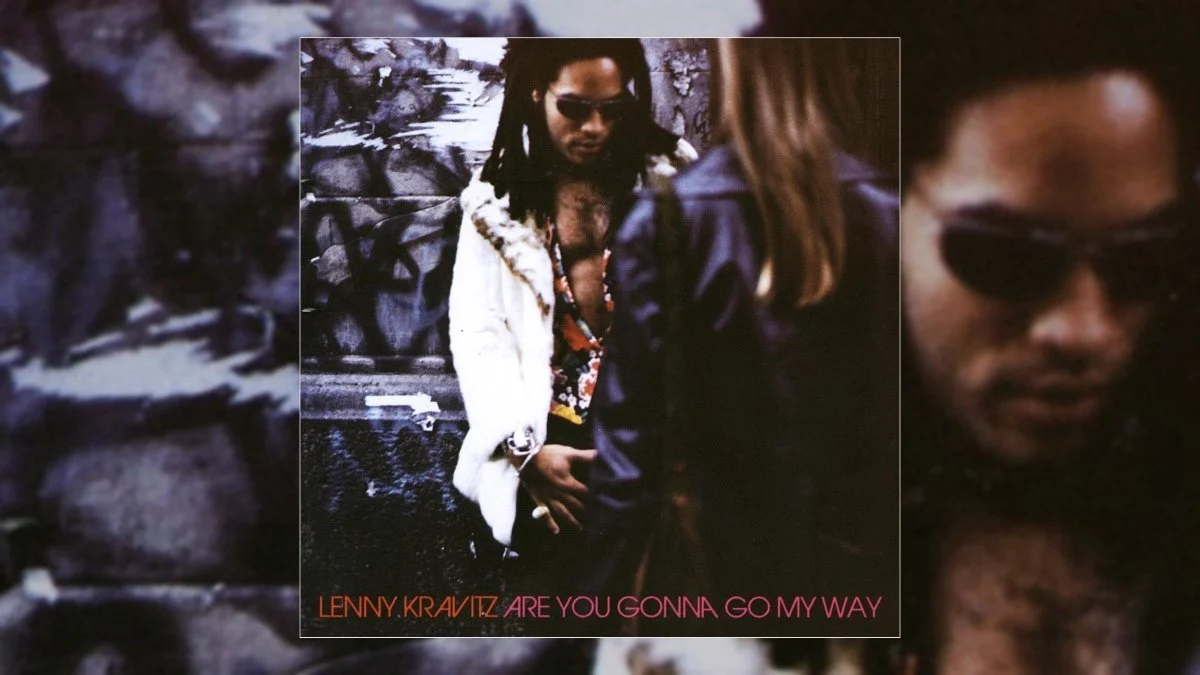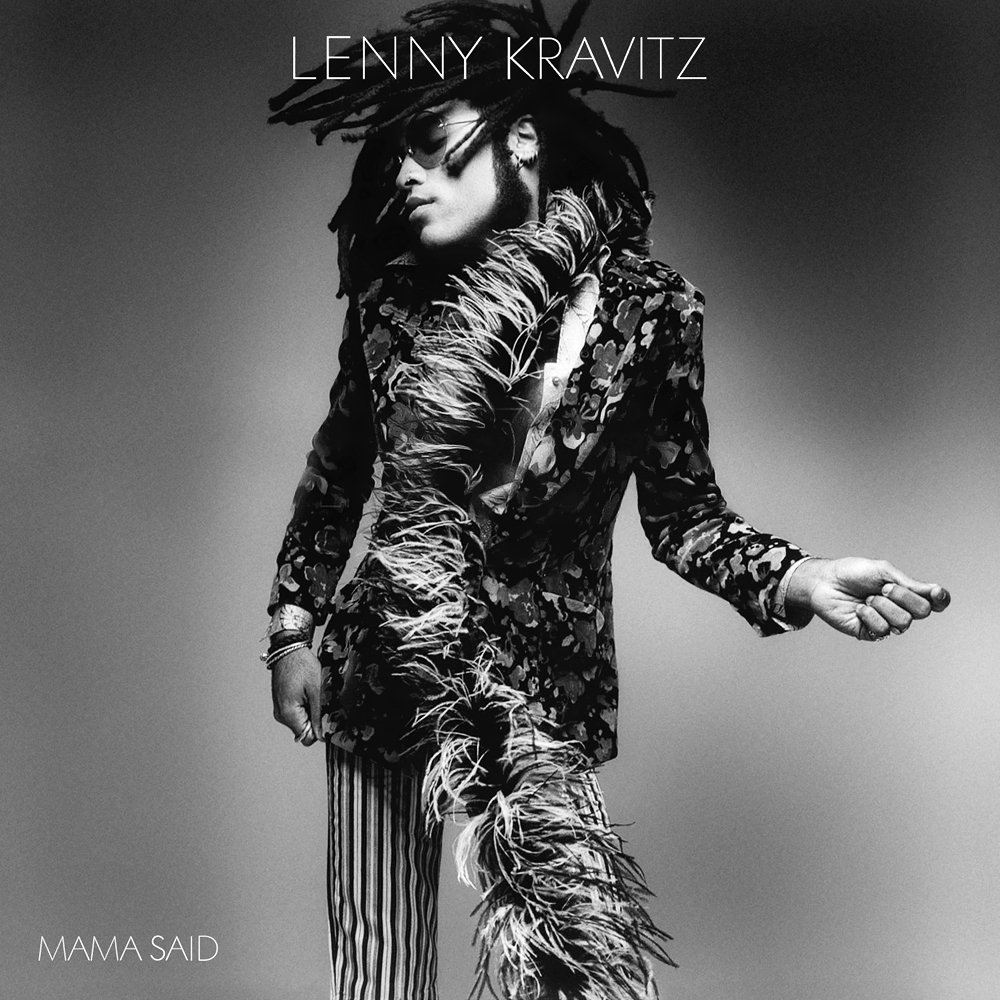Happy 30th Anniversary to Lenny Kravitz’s third studio album Are You Gonna Go My Way, originally released March 9, 1993.
What’s not to love? He’s a singer, songwriter, producer, fashion icon, author, actor, and humanitarian who’s sold more than 40 million albums, won four GRAMMYs, and collaborated with Michael Jackson, Madonna, Aerosmith, and anyone else you care about. However, before he rose to global stardom, there was a lengthy stretch when critics could not have cared any less about Leonard Albert Kravitz.
Early on, tabloids created a lopsided perception of him as merely “Lisa Bonet’s husband” (he eloped with the Cosby Show actress in 1987). Upon discovering his mother was The Jeffersons actress Roxie Roker, it was all too easy to dismiss Lenny Kravitz as patently auxiliary—until Virgin Records A&R director Nancy Jeffries heard five minutes of his demo tape. The label’s president described him as “Prince meets John Lennon,” signed him in January 1989, and pressed his spirited debut Let Love Rule the same year.
Buzz got going quickly, but sales and chart performance were sluggish. Separation from his wife inspired the inescapable hit “It Ain’t Over ‘Til It’s Over” from his sophomore project Mama Said (1991). Still, a sense lingered that Kravitz was more gimmick than substance. He was a favorite target for music journalism potshots, but they were all about to eat crow.
In search of a commercial breakthrough, the third time was indeed the charm. For Are You Gonna Go My Way (1993), Kravitz melted down classic rock and soul of the ‘60s and ‘70s to forge invigorated ear candy for the masses. Producing himself as always, his edge was sharpened this time by guitarist Craig Ross who remains his chief collaborator to date.
Together they came up with a song that would soon unleash sound and fury onto the airwaves. According to Kravitz, it was rush-recorded in one-take during the last five minutes of a studio session for then-girlfriend Vanessa Paradis. The next day, he wrote the lyrics on a paper bag in the first-person perspective of Jesus Christ pointing to “the way of love.” They had no idea the magnitude of hit they had on their hands.
Listen/Watch (Playlist):
A cataclysm of fiery riffs and animal drumming, “Are You Gonna Go My Way” meshed with grunge-alternative formats, but was hooky enough to capture pop ears—and eyes. Its Mark Romanek-directed clip of Kravitz—sheathed in red, dreadlocks in full bloom, performing in the round for an electrified crowd under a pulsating dome of light—won the MTV Video Music Award for Best Male Video and cemented a future for the superstar-in-waiting. Although technically ineligible for the US Hot 100, it reached #1 on Billboard’s Mainstream Rock chart and Top 10 in no less than nine other countries.
Though the UK had always been quick to embrace Kravitz, he had a hard time gaining acceptance on his home soil. In one spectacularly backhanded review, Entertainment Weekly’s David Browne called Kravitz a “sucker for ’60s nostalgia,” a “blatant rip-off artist,” and a “derivative dresser” who will “sing any nonsense that pops into his dreadlocked head.” Even with insults piled sky high, at the end, the dissident still had to admit how good the LP was. Therein lies the power of Are You Gonna Go My Way.
Accordingly, its slow-burning second single “Believe” is a lighters-in-the-air, feel-good anthem (“If you want it, you got it / You just got to believe / Believe in yourself”). From the sacred organ intro to its closing guitar solo that smolders until it fades, the construction here is solid. Following in sequence is “Come On and Love Me,” a repeat-worthy album cut marked by overdriven drums that knock like sneakers in the dryer while Kravitz evokes Smokey Robinson with his falsetto coo.
He cedes songwriting duties to his cousin Gerry Deveaux and “What’s Love Got To Do With It” co-writer Terry Britten for the third single. Contrary to its celestial title, their composition “Heaven Help” is corporeal, earthy, and tactile like pressing your face against a lover’s skin. This oasis of Isley-ism here is supported with backing vox by Kravitz, Deveaux, and soul legend Angie Stone who later cut a solo rendition for Black Diamond (1999).
Last in the train of radio offerings was the frivolous “Is There Any Love in Your Heart.” The funk-kissed uptempo is a tongue-in-cheek indictment of opportunist groupies (“Babe, you say I'm the only one / But you're fucking all my friends”). Hardly very serious, it’s the junior collegiate equivalent of “Maybelline, why can’t you be true,” modernized for the ‘90s.
Are You Gonna Go My Way hardly relinquishes its optimism except to lament an abusive relationship on the languid “Sister.” Otherwise, it rebounds with the sunny reggae of “Eleutheria,” a euphoric tribute to the Bahamian archipelago his maternal family hails from, an island Kravitz now also calls home.
Thematically, love, sex and religion swirl throughout this disc until they blend. In the wake of his divorce from Bonet in 1993, one might have expected embitterment. Instead, we find Kravitz praising femininity on “Just Be a Woman” and “Black Girl.” Though both exude quiet, reverential auras, the former leans on expressive acoustic guitar, where the latter dispenses lo-fi, blues-fused psychedelia. Along those same lines, “Sugar” is the obligatory redux of “It’s Not Over ‘Til It’s Over” because sometimes you have to give the people what they want—unless they want a genre hegemony.
Enjoying this article? Click/tap on the album covers to explore more about Lenny Kravitz:
Despite the founding contributions of Chuck Berry, Little Richard, and Sister Rosetta Tharpe, Black outfits like Living Colour, The Family Stand, and Fishbone would still encounter resistance on the ‘90s rock landscape. Kravitz was not exempt. As if Jimi Hendrix never existed, the American rock press was loath to carry another brown-skinned rocker on its shoulders. Like his forebears, when he couldn’t secure an invitation, he was forced to crash the party.
The success of Are You Gonna Go My Way turned the tide for Kravitz. Over four million copies sold, with half coming from the US where it was certified double-platinum, peaking at #12 on the Billboard 200. He also earned his first GRAMMY nominations for Best Rock Song and Best Male Rock Vocal Performance. This quelled disparaging gatekeepers long enough for his adulation to spread worldwide.
Though its coal-smudged follow-up Circus (1995) would find a vulnerable Kravitz grappling with mortality and existential concerns, he was able to do so without questions of legitimacy dogging him. To be a Black rock star in America was no longer an implicit contradiction. To be a commercially viable one meant he could write his own ticket. And why shouldn’t he? Anyone who can deliver a record like this should be able to go any way he wants.
LISTEN:



